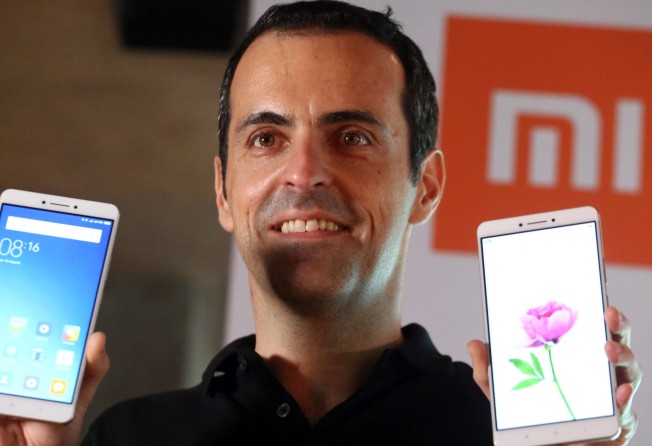Xiaomi underlines its future as a premium brand
Company launches latest 6.44-inch phablet, a size it describes as the “sweet spot between a phone and a tablet”

Smartphone giant Xiaomi continues to distance itself from the lower end of the market, as Chinese buyers shift their attention primarily to device upgrades.
Hugo Barra, the company’s vice president of international, said on Tuesday it continues to direct its efforts at becoming a premium brand.
“When you look at ... the prices of our products,they have been going up,” said Barra, speaking at Xiaomi’s Mi Home experience centre in Hong Kong.
“Our customers are demanding premium products from us, so we are delivering higher quality [smartphones] with more premium components.”
China, the world’s largest smartphone market, is becoming increasingly saturated.
Research firm IDC has forecast just 2 per cent growth this year, as more users chose to upgrade their handsets to a better device.
“If you look across the industry you’re going to see ... people launching phones that are lower-end. That’s not our business.”
The experience centre, which opened a year ago, is Xiaomi’s first bricks-and-mortar outlet in Hong Kong and allows customers to try out different products.
Barra labelled Mi Home as a successful retail “experiment”, and said it was now likely to open at more locations across the city in future.
His words echoed those of Xiaomi CEO Lei Jun, who said at the Summer Davos forum in Tianjin last week that the company plans to open about 1,000 experience stores globally as it strengthens its offline offering.
The latest moves represent a shift away from Xiaomi’s previous online-only business model.
Customers previously wishing to buy a Xiaomi smartphone or device in-store would have to participate in one of the company’s weekly flash sales.
“Retail hasn’t really seen any innovation for a decade, if not longer,” said Barra.
“Part of the strategy here is to think about how we can reinvent the retail experience to make it much more experience-focused ... which helps the online business as well.”
He was also launching the company’s latest 6.44-inch Mi Max phablet and Mi Air Purifier 2, which will be available in Hong Kong this month.
The new phablet, which will cost from HK$1,799, is considered one of the largest smartphones on the market, as Xiaomi continues to bet big on the rising popularity of larger handset screens.
“People don’t want smaller phones,” said Barra, adding that he is “100 per cent” sure that a 6.44-inch screen is the sweet spot between a phone and a tablet.
“Anything bigger than that you can’t hold in your hand properly.”
IDC estimates 20 per cent of smartphone sales in 2015 were phablets, and by 2020 they are expected to account for 32 per cent of the market.
Founded in 2010, Xiaomi experienced triple-digit growth in 2013 and 2014, but sales have slumped following a slowdown in the global smartphone market. Last year sales growth had slowed to 15 per cent.
The company has since diversified its business into smart appliances such as a connected rice cookers, water purifiers and smart lamps in an effort to create a smart home ecosystem.